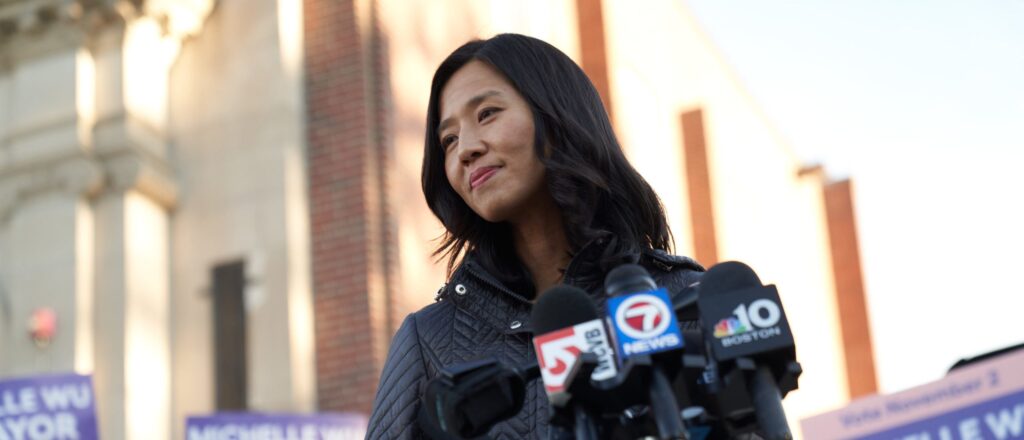Democratic Boston Mayor Michelle Wu proposed legislation in late March that would let the city hike taxes on its already struggling commercial real estate sector.
The proposal is meant to combat falling revenue from commercial real estate due to a drop in property values as the sector struggles, seeking to prevent the city from needing to raise taxes on residential property owners, according to an announcement from the city. Boston is currently experiencing record vacancy rates for commercial properties, with around 25% of the 69 million square feet of office spaces being empty, weighing on commercial property owners, according to Bloomberg. (RELATED: Biden Admin Announces Billions In Funding For Major Chip Maker As Construction Stalls)
If the proposal is passed by the City Council, it will then need to be approved by the state legislature and the governor, according to the Boston Globe. If passed, it could go into effect in July at the start of the 2025 fiscal year and would end after five years.
“As Boston invests in revitalizing our Downtown and commercial corridors in response to shifting market trends, we are working with all stakeholders to protect residents and homeowners against sudden and dramatic tax increases,” Wu said in the announcement. “For our seniors on fixed incomes, for families with children, for frontline workers and all our community members, we must have the tools to address rising housing costs and keep residents in their homes.”
Mitchell Moss, an urban policy and planning professor at New York University, has pointed out that raising taxes on already struggling commercial real estate owners could make them even less competitive, contributing to a possible exodus of owners and businesses in the city to alternative locations like nearby Cambridge, Massachusetts, according to Bloomberg.
Commercial real estate nationally has been under intense pressure from declining revenues and an increase in the cost of credit due to a hike in the federal funds rate, which has been placed in a range of 5.25% and 5.50% by the Federal Reserve to combat high inflation. Declining revenues are in large part the result of an increase in the share of people working from home, which increased dramatically at the onset of the COVID-19 pandemic.
30% of small banks’ balance sheets are still commercial real estate at a time when the office vacancy rate is 20% and revenue to these mortgage holders has been reduced; large banks’ exposure is now less than 6.5% of their balance sheets: pic.twitter.com/WQp4woWgwq
— E.J. Antoni, Ph.D. (@RealEJAntoni) April 8, 2024
“The City has been closely monitoring and planning for the impacts of declining commercial real estate values on the City’s tax base,” said Chief Financial Officer Ashley Groffenberger. “By taking this proactive step, we are ensuring that we have the tools necessary to safeguard basic City services and create stability for all taxpayers.”
Under Boston’s current tax plan without hikes to commercial real estate taxes, the city would have a $1 billion shortfall over the next five years, according to Bloomberg. The proposal mirrors a policy Boston adopted after the dot-com crash two decades ago, which similarly led to a downturn in the commercial property market.
The Boston mayor’s office did not immediately respond to a request to comment from the Daily Caller News Foundation.
All content created by the Daily Caller News Foundation, an independent and nonpartisan newswire service, is available without charge to any legitimate news publisher that can provide a large audience. All republished articles must include our logo, our reporter’s byline and their DCNF affiliation. For any questions about our guidelines or partnering with us, please contact licensing@dailycallernewsfoundation.org.


